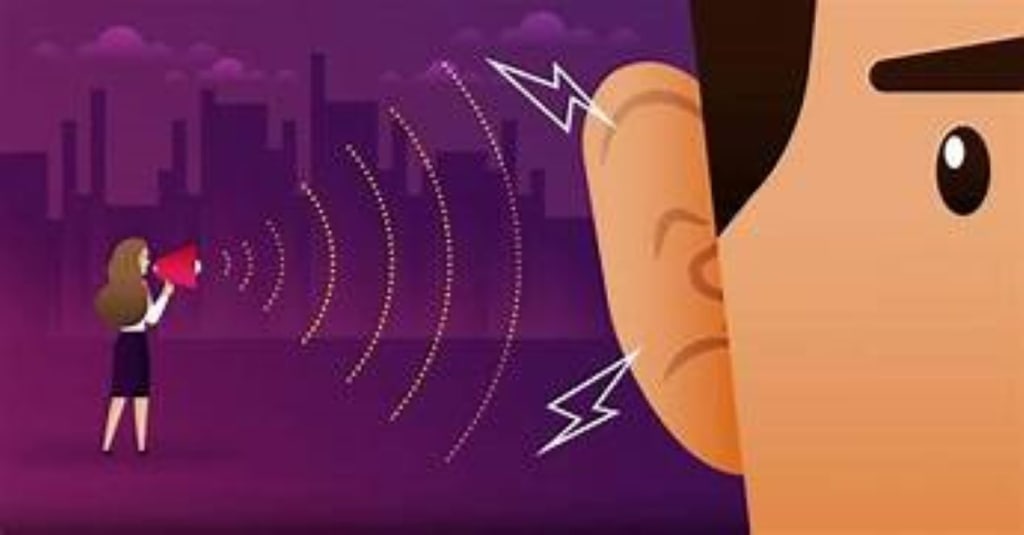
Government backed retirement Incapacity for Hearing Misfortune
Government backed retirement naturally concedes handicap for significant hearing misfortune or deafness in the two ears.
Government backed retirement handicap benefits are accessible for significant hearing misfortune or deafness, yet not really for moderate or gentle hearing misfortune. The Federal retirement aide Organization (SSA) subtleties how huge your hearing misfortune should be to fit the bill for SSDI (Government managed retirement Handicap Protection) or SSI (Supplemental Security Pay) inability benefits.
Is Hearing Misfortune a Handicap?
Government backed retirement consistently gives incapacity for deafness and significant hearing misfortune. Furthermore, the Americans with Incapacities Act (ADA) counts deafness and hearing misfortune as handicaps, implying that businesses need to make sensible facilities for workers who are hard of hearing or have extreme hearing misfortune.
The amount Hearing Misfortune Do You Should Be Viewed as Debilitated?
Significant and extreme hearing misfortune can meet all requirements for inability. Government managed retirement evaluates hearing misfortune in two ways: with its posting of debilitations, which sets out test results you want to must be crippled, and by deciding whether there are any positions you can do with restricted hearing.
The SSA's hindrance posting 2.10 states the necessities for naturally getting incapacity benefits for hearing misfortune. To fit the bill for handicap benefits for hearing misfortune (without cochlear inserts), you should meet both of the two following tests.
Unadulterated tone air conduction and bone conduction audiometry. Your typical hearing edge responsiveness for air conduction should be 90 decibels (dB) or more regrettable in your better ear, and you should have a bone conduction hearing limit of 60 dB or more awful in your better ear. Your hearing misfortune should be determined by averaging your hearing at the sound frequencies of 500 hertz (Hz), 1,000 Hz, and 2,000 Hz.
Or then again
Word acknowledgment test. You should not have the option to rehash over 40% of a rundown of normalized words verbally expressed in a word acknowledgment test (which tests discourse separation).
How Are the Consultation Tests Managed?
You should be given the unadulterated tone, bone conduction, and word acknowledgment tests by:
an otolaryngologist (ENT), or
an authorized audiologist.
All testing ought to be managed without listening devices.
Notwithstanding the conference tests, the audiologist or ENT, or another clinical specialist, should inspect your ears and review an "otologic test report" with a depiction of your outside ear trenches and tympanic layers, alongside any center ear irregularities.
In the event that the SSA thinks your hearing isn't quite so awful as your unadulterated tone audiometry tests show, the organization could send you to an audiologist for hear-able evoked reaction testing (which estimates brainwave reactions to tones). The SSA could send you for extra testing assuming your bone conduction test results are conflicting with your unadulterated tone test results.
Is Handicap Programmed for Hearing Misfortune With Cochlear Inserts?
On the off chance that you have cochlear inserts in one or the two ears, the SSA utilizes an alternate leaning to decide handicap, posting 2.11. Government backed retirement will consequently give you inability benefits for one year after the cochlear implantation (whether your hearing works on in 12 months or less).
Following one year, Federal retirement aide will end your handicap benefits except if your statement acknowledgment is as yet poor for words expressed at 60 dB. On the off chance that your statement acknowledgment on any rendition of the "Hearing in Commotion Test" (Clue) is 60% or less, with your embed acclimated to typical settings, Government backed retirement will keep on perceiving your hearing misfortune as a handicap.
While Your Hearing Misfortune Doesn't Meet the Posting Necessities
Many individuals are deaf yet don't meet the SSA's inability posting for significant hearing misfortune, which is truly challenging to meet. You can in any case get handicap benefits on the off chance that you can show that there are no positions you can do with your measure of hearing misfortune.
Federal retirement aide will initially affirm that you can't keep on going about your past responsibilities, and, next, will conclude whether there is some other sort of work you can do. The SSA will consider what your hearing misfortune means for your ability to convey, adhere to directions, and do different positions. This is the way the SSA could treat different degrees of hearing misfortune.
40 dB or higher. On the off chance that your normal unadulterated tone limit is higher than 40 dB in your better ear, Government managed retirement ought to give you an "RFC." RFC means "lingering useful limit," a rating of the sort of work you can do. In your RFC, the SSA will remember hearing-related limitations for the work you can do. Government backed retirement as a rule considers limits under 40dB as gentle, and will not set up a RFC.
50 dB or higher. In the event that your hearing misfortune is moderate (for instance, your typical limit is 50 dB, and your statement acknowledgment scores are 60% or less), you most likely experience issues hearing and following headings. This could preclude a few sorts of positions, remembering work for a loud climate or occupations where directions can't given in compose.
70 dB or higher. Assuming your hearing misfortune is extreme (for example, assuming that your normal hearing edge responsiveness is 70 dB or more awful, in your better ear), you can't take care of business that requires great hearing and good word acknowledgment. This would preclude work that requires speaking with people in general via phone or radio, or occupations that require the activity of risky hardware.
At times, the SSA could likely still secure positions you could do where it isn't essential to hear. In any case, on the off chance that you don't have the work abilities or schooling to do those positions, you could possibly get handicap benefits in light of a "clinical professional remittance," particularly assuming you're 55 or more established.
The SSA will in any case need to see different audiometry tests in your clinical records, including unadulterated tone, bone conduction, Clue word acknowledgment tests, and caloric and vestibular capability tests.
Incapacity Mysterious
Might I at any point Work With Hearing Misfortune?
Whether your hearing misfortune is gentle or significant, you'll probably encounter a few restrictions in the event that you continue to work. What's more, contingent upon the kind of hearing misfortune you have, your degree of hearing could demolish after some time. As per the Americans with Handicaps Act (ADA), your boss is expected to give you sensible facilities so you can prevail in your work.
A few facilities for individuals with hearing impedances include:
⦁ shut inscribing or live subtitling
⦁ American Gesture based communication (ASL) mediator
⦁ message telephones or video hand-off administrations
⦁ phone enhancement
⦁ vibrating cautions or watches
⦁ changes in work area plans, or
⦁ hearing insurance.
Is Significant Hearing Misfortune in One Ear Viewed as a Handicap?
Government backed retirement is worried about how well you can hear in your better ear. Assuming you have one ear with great hearing, or just gentle hearing misfortune, you will not get incapacity benefits. You would get supported for handicap provided that the conference in your better ear was poor to such an extent that you met the test prerequisites in the posting for that ear or your hearing impedance caused you not to have the option to do any positions.
The amount Cash Might a Hard of hearing Individual at any point Overcome SSDI?
Government managed retirement doesn't pay a higher SSDI sum for deafness as it accomplishes for visual deficiency. How much SSDI benefits paid for deafness or serious hearing misfortune relies upon your lifetime income. Government backed retirement will compute your handicap benefit by taking a gander at your typical pay over your lifetime from occupations where you settled FICA expenses or independent work charges
About the Creator
Mary Eva
I am going through this "spirituality" phase in my life, and I wanted to try something new and share my findings. I don't have 1 certain topic to write about. I post random articles and how you apply my work to your life is up to you.






Comments
There are no comments for this story
Be the first to respond and start the conversation.